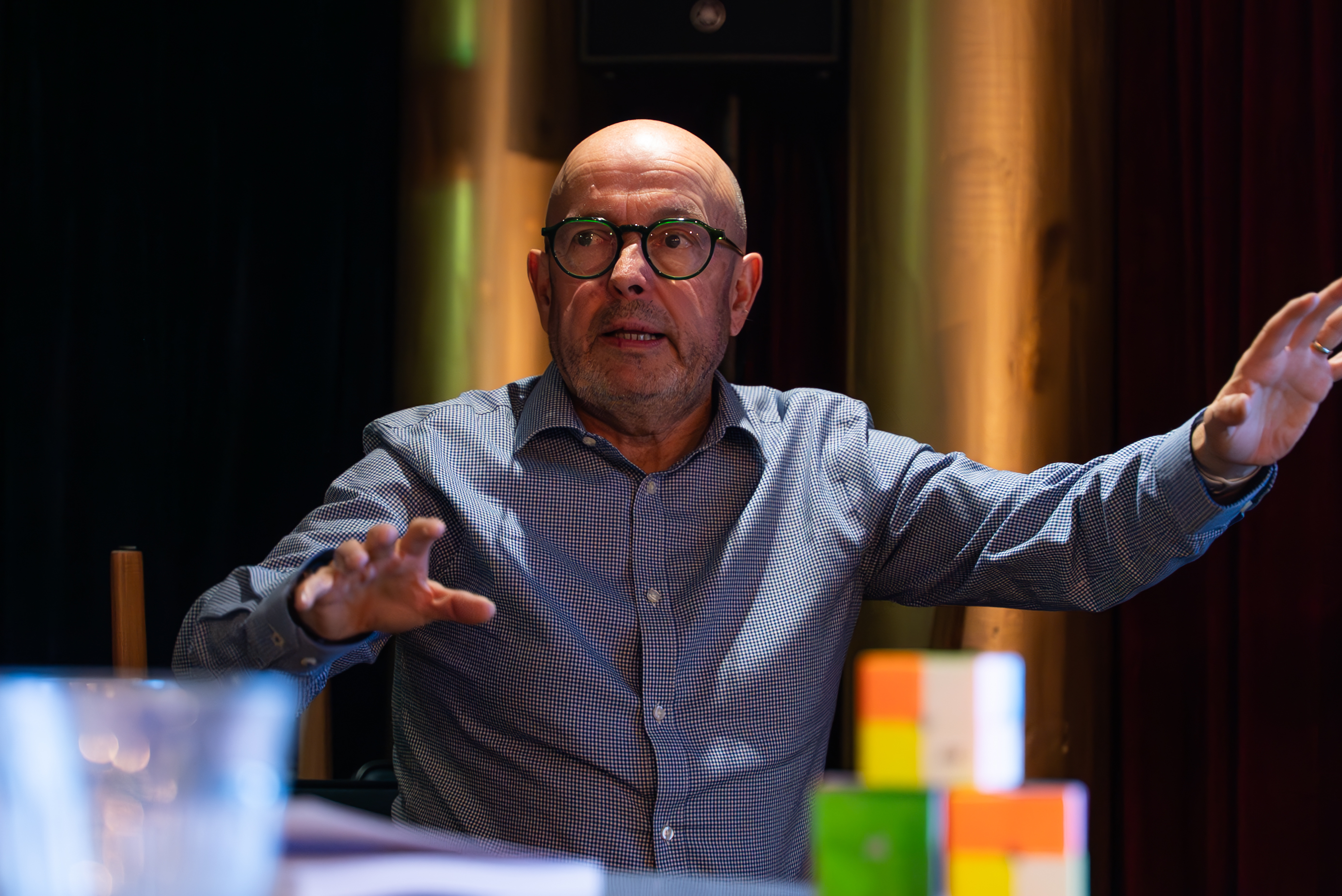What sports teams can learn from playing a business simulation
By Ken Thompson, Mar 23, 2021 Last updated Jun 11, 2025
We ran our popular Compete business simulation via Zoom with youth teams at St Judes Gaelic Football and Hurling Club in Dublin, who had not been able to play matches or train during lockdown. The goal was not to develop their business skills, as we normally do, but to refine individual and team skills to improve results on the pitch—and possibly even more importantly, to nurture morale and team spirit during what is a very challenging time for both players and coaches.
The simulation
To run the simulation, we formed 10 teams of 4–5 players per team (one team was made up of the coaches, which became exceptionally competitive and made for some very interesting banter, plus attempts to hack into the other teams’ decisions). The goal of each team was to compete with the other nine teams at running coffee kiosks at a four-match top-flight tournament to see who could make the most money for their individual clubs.
It was a win–lose game—if someone buys a coffee from one team, they won’t be buying one from somebody else. But it’s not just about selling your coffee cheaply, as this won’t fully cover your costs and you won’t actually make any profit. You also need to think about your strategy/plan and your tactics for executing them. Also very importantly, you need to anticipate what the other nine teams are likely to be doing and how you might differentiate yourselves.
The learning gained
The simulation lasted four hours (spread over four weekly one-hour sessions) and allowed the teams to experience and discuss key skill areas including mental preparation, training, match planning, team set-up, on-pitch tactics and post-match analysis.
Over the four weeks a huge range of key learning points were surfaced and explored, including:
- Hitting the ground running – starting strongly
- The importance of “doing your job” on the team (Bill Belichick)
- How the game can be won or lost in the changing room
- The importance of communications on the pitch and not just the team captain
- Knowing when to compete and when to collaborate in the club
- The importance of good time management on the pitch
- Taking and managing risks at an individual and team level
- The importance of listening (when nobody else is!)
- The need for “calm concentration” under pressure
- Nearly is not good enough – the importance of continuous improvement
- Objective setting – the difference between good and bad objectives
- Eating the elephant – the importance of micro-goals
- Strategy versus execution – what is the difference and why is it so important
- Resilience – recovering from disappointment and putting it behind you
- Times when you can choose to be a leader (or not)
- Adjusting your plan – when to stick and when to twist
- When to focus on yourselves and when to focus on the opposition
- The surprising importance of relationships and reputations on performance
The final results
At the end of each round, we showed the results on a leaderboard with a different team usually in the lead each round. Then at the end, we had a final “big reveal” of who had the best overall results.
Just like our other simulations, it is facilitated so there may be many winners—so no losers. Feeling like losers in front of your peers is not a good frame of mind for learning that sticks!
Finally, we closed out by recognising all of the teams for their achievements, including:
- Best sales
- Best profits
- Best market share
- Best customer loyalty
- Most improved team
- Best teamwork
- Most resilient team
- Best insights shared
The benefits
Billy Glennon, one of the St Judes coaches, summed up the value to the club of the sessions:
“The facilitator’s style during the sessions was very appealing and insightful—they were able to impart lessons to the team that we as coaches struggled to get across. They were always alive to the messages the coaching group wanted to deliver and aligned his sessions with those.”
“The programme ran for four weeks, delivered to a group of about forty 17–18-year-old boys. The group was made up of three different teams within the club that are now combining into one. The primary aim of the programme was to keep the boys engaged during lockdown and to get them interacting with each other. We were really building a team from scratch. By the end of the fourth week they were speaking out in the group sessions and the groups were actively engaged in competitive banter back and forth—a big step forward for this group.”
“This was a step forward for this group who have come together in lockdown and have not yet played a game as a team. I wish we had run it for a few weeks longer.”
